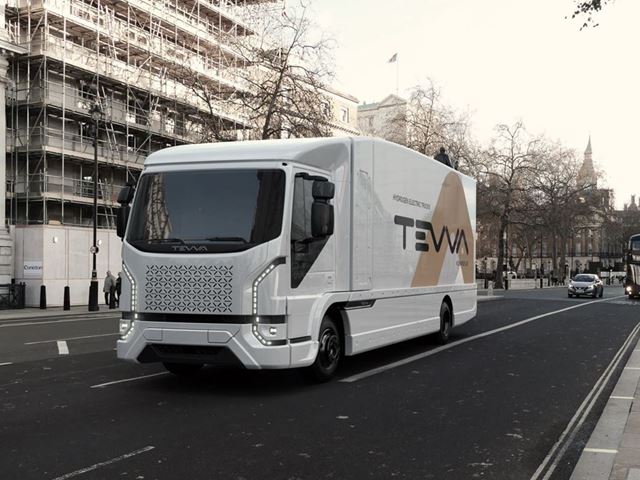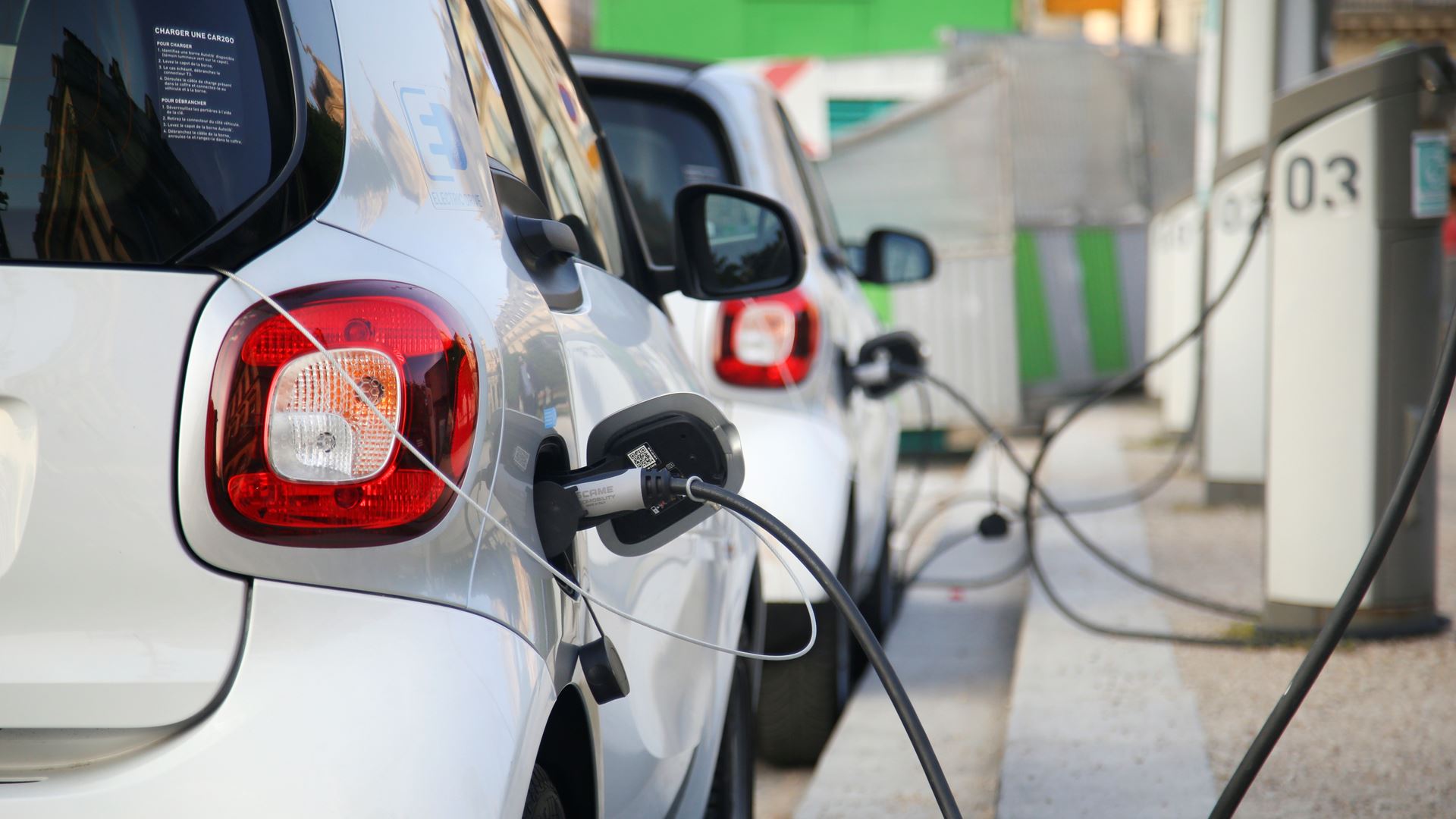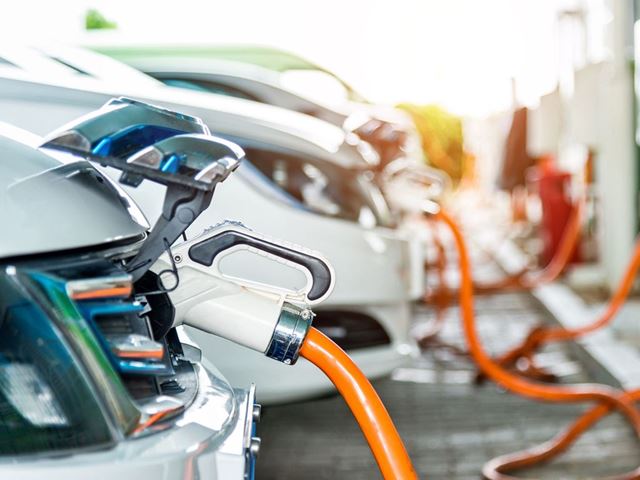
- Latest: Welcome to Auto Futures - Mobility News, Features, Exclusives and More...
- Latest: Subaru Europe Unveils the Brand's First All-Electric Compact SUV
- Latest: Lucid, Nuro & Uber Partner on Next-Generation Autonomous Robotaxi Service
- Latest: GM & Redwood Materials to Repurpose EV Batteries for Energy Storage
- Latest: Stellantis Discontinues Hydrogen Fuel Cell Technology Development Program
- Latest: Paving the way for an Electrified Future - L-Charge CEO
A Year That Proved Challenging for E-Mobility - 2023 in Review With Tevva, McLaren Applied, EVolve, VEV & Monolith
Adrian Smith
- Dec 20 2023

Will 2023 go down as the year that e-mobility stalled? Well it was certainly a reality check for many OEMs and electric vehicle (EV) startups and scaleups. However, for some companies the challenges proved to be fatal.
In this review of 2023, we offer up the opinions of leading experts at Tevva, McLaren Applied, VEV, EVolve and Monolith.
In October 2023, there was a shock announcement from Volta Trucks. The company that had developed the world’s first purpose-built 16-tonne all-electric truck, filed for bankruptcy proceedings in Sweden. The collapse of its battery supplier Proterra back in August had severely damaged its manufacturing plans.
According to a press statement, 'The uncertainty with our battery supplier also negatively affected our ability to raise sufficient capital in an already challenging capital-raising environment for electric vehicle players'. Volta has subsequently been bought by a hedge fund.
The news was a major wake-up call for the sector that was already struggling with a weakening consumer demand for EVs.
According to Ford, many North America customers interested in buying EVs are unwilling to pay premiums for them over gas or hybrid vehicles. This is leading to sharply compressed EV prices and reduced profitability.
Also in October, a proposed merger between the UK-based battery-electric vehicle (BEV) manufacturer Tevva and ElectraMeccanica Vehicles Corp, dramatically fell apart.
"It’s no secret that Tevva has had its challenges this year - similar to many startups in the electric vehicle (EV) space who have faced and continue to face several obstacles to mass production," Stuart Cottrell, Head of Energy Services and Government Partnerships at Tevva, tells Auto Futures.
"Tevva continues along its road, producing battery-electric trucks at our London facility and delivering them to eagerly awaiting customers. But we need help to scale up and carve a pathway towards greater adoption of zero-emission vehicles," he adds.

"Multiple Factors Are At Play"
So why did the e-mobility sector suffer a major wobble in 2023, and how can it overcome the challenges?
VEV helps large fleets, corporate fleets and municipalities to decarbonise. Owned by the global energy trading company Vitol, its solution encompasses the planning and delivery of the electrification of the fleet, as well as ongoing fleet management services.
"Multiple factors are at play. High inflation, rising interest rates, and fears of recession have put pressure on consumer spending, while surging demand and supply limitations in EV batteries kept lithium-ion battery prices elevated – slowing cost reductions for a key EV cost-component and constraining affordability," says Mike Nakrani, VEV's CEO.
At the same time, concerns about how to manage vehicle charging and infrastructure are at the forefront of the mobility transition.
"Whilst improving, charging networks are still lagging, with buildout of charging stations and grid upgrades not keeping pace in many areas, leading to some concerns about accessibility and convenience of EVs for mainstream adoption," explains Nakrani.
"In a landscape marked by surging customer demands and competitive pressures to enhance range and charging efficiency, engineering teams are grappling with a host of challenges as they navigate the path to product launches. Paramount among these challenges are concerns regarding battery longevity, protracted charging periods, and limited operational range," comments Richard Ahlfeld, CEO and founder of Monolith, an AI software provider.
The perception of EV charging remains an issue for the industry. Andy Bennett is the CEO of EVolve, which provides EV charging and energy management platform solutions for charging providers and fleet operators.
"While range anxiety is declining as battery technology gets better, it is being replaced by 'charge anxiety'. EV drivers are having bad charging experiences caused by malfunctioning chargers. They are looking for a better, more seamless charging experience across networks, and without having to use multiple RFID tokens or apps," he says.
"By ensuring the availability and stability of chargers in their networks operators can address charge anxiety and provide drivers with a seamless charging experience. Easy implementation of roaming agreements will expand the operator’s charger network enabling drivers to charge wherever they want, and smart energy management lets operators meet the growing need for energy from site level to country level," adds Bennett.

New Waves Of Electrification
With its heritage in motorsports, McLaren Applied is developing innovations in electrification, connectivity, telemetry, control and analytics.
"As an industry, we’re facing what we call the third and fourth waves of automotive electrification, which will take us into an era of mobility in which EVs dominate. This is where carmakers will prioritise developing super-efficient EVs which align with the driver experience they want to deliver and their brand ethos," says Samir Maha, McLaren Applied's COO.
"An efficient drivetrain inherently has a smaller battery, which makes the vehicle cheaper, lighter, and easier to control, and offers a smaller carbon footprint in terms of raw materials. It also increases the range and speeds up charge times, building trust in the technology."
According to Maha, the fourth wave will be characterised by the need for a ‘definable experience’.
"More electric models on the market means a greater need for differentiation, especially with mass market brands already stealing a march on sports marques. Today, you can buy a compact EV that accelerates faster than a Lamborghini, which may be great fun initially but doesn’t build that all important ‘character’ and driver engagement."
Tevva's Stuart Cottrell believes that government incentives can help get electification back on track.
"We believe that further government action is required to ensure that the UK achieves its net zero goals in the best and fastest possible way for the good of the environment, economy and British people."
"As the UK has the most ambitious targets for battery-electric truck adoption, we need the most attractive incentives in place to stimulate demand, especially as we’re no longer bound by EU state aid rules limiting the amount of support governments can give specific industries," he says.
VEV's Mike Nakrani thinks the key to encouraging EV uptake is laying down strong charging infrastructure and energy supply.
"International regulatory bodies and national governments need to continue their efforts to ensure that EVs of all types – including heavy-duty commercial vehicles – have the chargers they need at their disposal, and a robust energy supply that’s capable of serving a scaled-up network."
In part two of our review, we'll be looking ahead to 2024, and gaining a range of forecasts from leading industry experts.
Tags
Popular Categories
